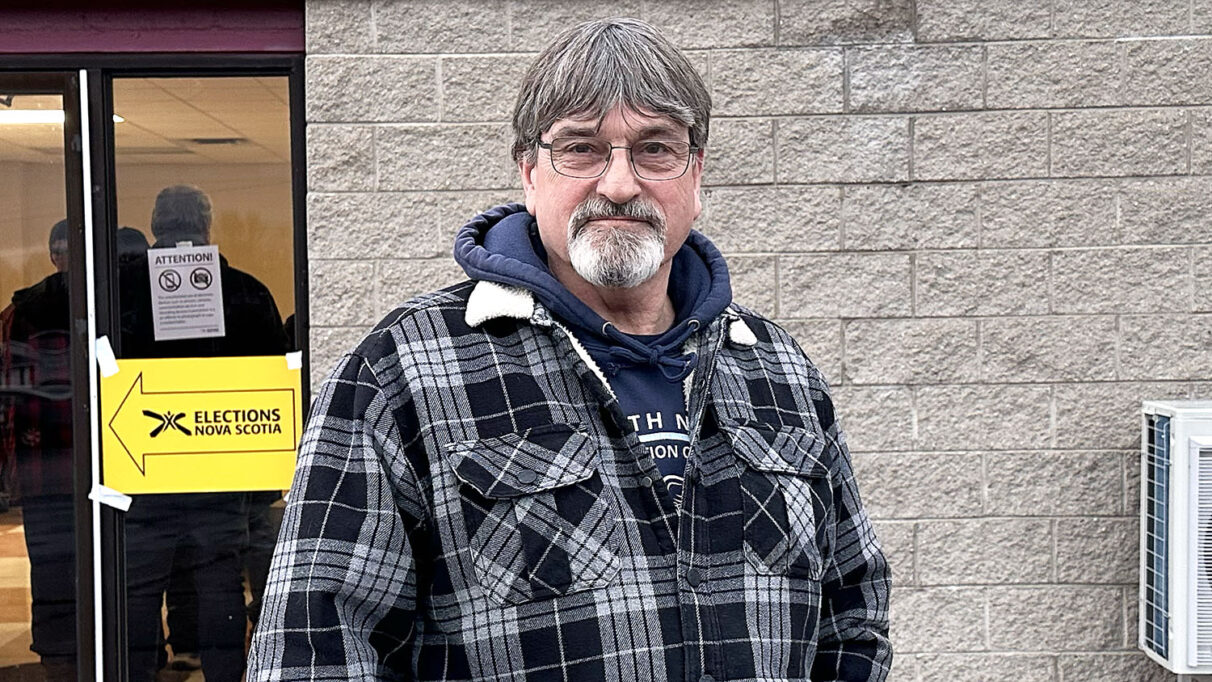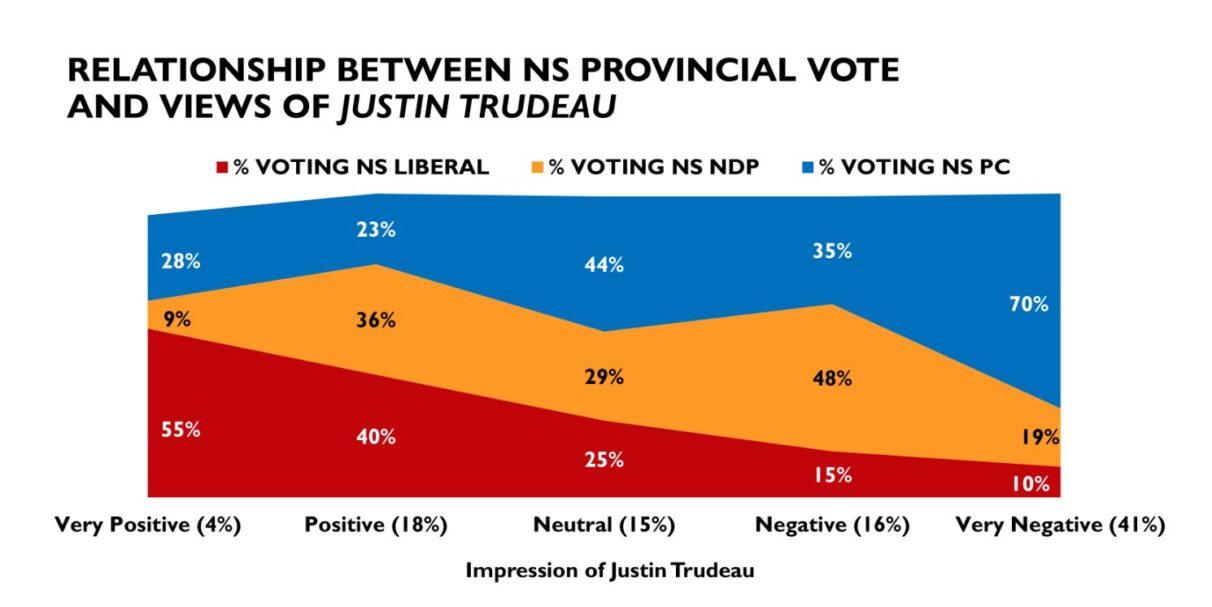Trudeau lingered in the minds of voters
Residents say the performance of the federal Liberals was a factor in the provincial election this week

caption
Liberal Leader Zach Churchill lost 15 seats on the night of the 42nd provincial general election in Nova Scotia.Outside a polling station in Trenton on election day, Pictou County’s Charles MacKinnon said the performance of the federal Liberals influenced his vote in Nova Scotia’s provincial election.
“Zach Churchill had his chance when he was already in here with (former premier Stephen) McNeil, and he did nothing, right?” said MacKinnon. “And then we have Justin Trudeau.”
The link between Churchill and two other Liberal leaders, McNeil and Trudeau, is one that MacKinnon said he’s heard others make.

caption
Charles MacKinnon thinks that the Liberal Party is “no good.”McNeil, the Liberal premier of Nova Scotia from 2013-21, and Prime Minister Justin Trudeau have two important things in common: their political party affiliation, and their unpopularity among their constituents. Related stories
Tim Houston leads PCs to second majority
Two years before the end of his term, the Angus Reid Institute reported that McNeil had the lowest approval rating among his fellow premiers.
Trudeau is similarly battling low approval ratings, with polling data from the Angus Reid Institute putting his approval rating at 30 per cent in September of this year.
This is the Liberal reputation that Churchill had to overcome.
Results from Tuesday night’s election show that he fell short of doing that, having won only two seats, down 15 from the 17 the party took in the 2021 election.
Tim Houston’s Progressive Conservative Party, however, gained 12 seats in this election, taking a 43-seat majority.
Polling from Abacus Data collected before the election shows that there was a clear connection between Nova Scotians who had a negative view of Trudeau and the rise in support of Houston’s PC government. They reported that “the PCs have been able to attract a majority of those with a negative view of Trudeau.”

caption
Abacus Data polling shows that the provincial PC party has gained the favour of Nova Scotians with a negative impression of Prime Minister Justin Trudeau.Sentiments such as MacKinnon’s reflect this data.
“The guy might be nice, but the party he’s with is no good,” said MacKinnon, referring to Churchill.
Cindy Thompson, also a Pictou County voter, said that she thought Liberals, in general, had “made a bit of a blunder.”

caption
Cindy Thompson and her son, Devon Thompson, voted in Pictou East on election day.When asked why, she pointed to Trudeau’s tax legislation at the federal level.
“We just can’t handle any more taxes,” said Thompson. “You can throw a little tax break at us for Christmas time, but it’s not going to make enough difference. Not at all.”
Churchill has tried to separate himself from the unpopular reputations of both McNeil and Trudeau.
“Listen, I’m not Stephen McNeil,” said Churchill to reporters after the CBC election debate on Nov. 14. “I’m Zach Churchill, in case anybody hasn’t noticed … I’ve got my own ideas, and I’ve got my own platform.”
Tuesday night’s results, which show the lowest number of seats for the Liberal Party in Nova Scotia history, suggest that Churchill’s attempt to separate himself from his party’s current reputation wasn’t enough.
‘Incumbentitis?’
The poor performance of the Liberal Party, and inversely, the sweeping victory of the PCs, is particularly notable given that, as Abacus Data reports, “incumbents everywhere in 2024 have seen their share of the vote decline.”
The pre-election polling from Abacus showed that 50 per cent of eligible Nova Scotia voters “definitely wanted to see a change in government,” but of that group, 13 per cent still said they “plan to vote PC.”
While Abacus reports the notability of the PCs bucking the trend of what some political experts are calling ‘incumbentitis,’ Dalhousie political science professor Louise Carbert said she can understand why the idea of a PC government remained popular despite the number of voters that said they wanted to see change in this election.
“Nova Scotia has not elected a PC majority government since 1999. In 2003 and 2006, the PCs secured precarious minority governments before being defeated by the NDP in 2009,” said Carbert in an email.
“So Houston’s PC candidates came on the scene, appearing very much like a new crew.”
The idea of a PC majority government, then, might have maintained its ‘freshness’ through the three years of Houston’s term as premier.
Still, Carbert doesn’t think all is lost for the Liberal Party. She notes that the performance of both the NDP and PC parties during the McNeil years was poor, but that they have both bounced back.
“It’s far too early to count the provincial Liberals out for the long term,” said Carbert.
About the author

Emily Enns
Emily Enns is a Master of Journalism student at King's. She has a BA degree from the University of Manitoba, majoring in history.
